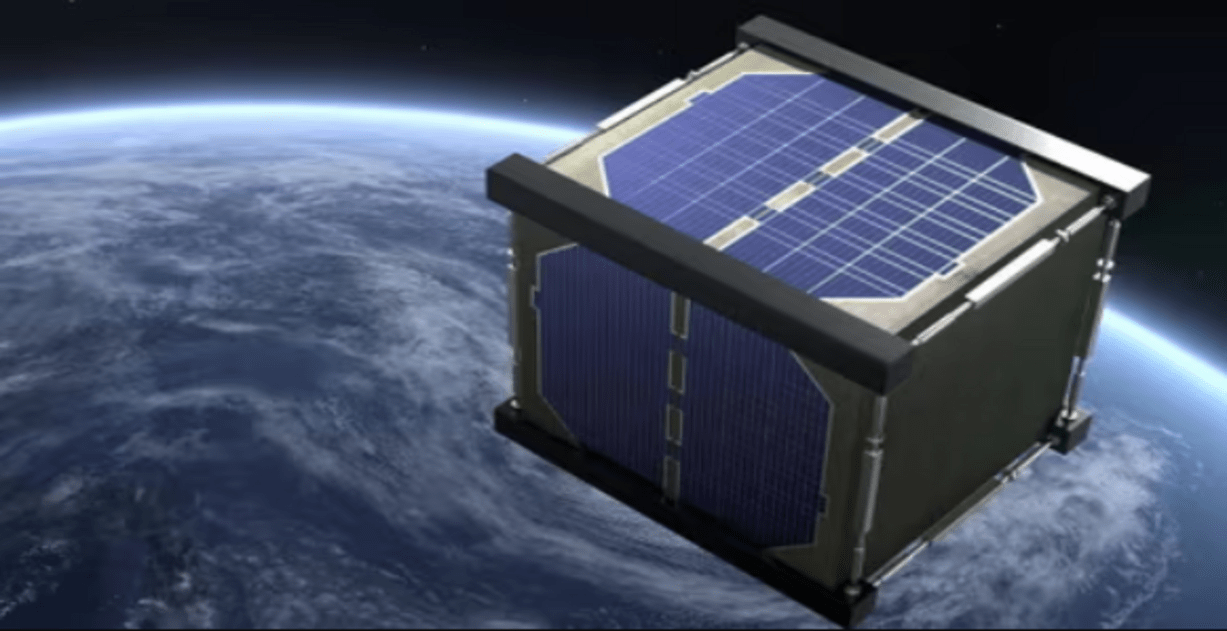Japan's Revolutionary Idea: A Wooden Satellite to Clean Up Space

Japanese scientists have developed an extraordinary spacecraft that stands out from the rest – a miniature satellite constructed entirely out of timber. Known as the Ligno Sat probe, this groundbreaking creation is made from magnolia wood, which has proven to be exceptionally stable and resistant to cracking during experiments conducted on the International Space Station (ISS). With plans underway for its launch on a US rocket this summer, the timber satellite is set to revolutionize the field of space exploration.
The researchers from Kyoto University and Sumitomo Forestry, a logging company, collaborated on this project with the aim of exploring the feasibility of using biodegradable materials like wood as eco-friendly alternatives to the metals traditionally used in satellite construction.
Astronaut and aerospace engineer Takao Doi, affiliated with Kyoto University, recently highlighted the environmental concerns associated with the current satellites. As they re-enter the Earth’s atmosphere, these satellites burn and release minuscule alumina particles that linger in the upper atmosphere for years, ultimately impacting the Earth’s environment.
To address this issue, the Kyoto researchers initiated a project to assess different types of wood and evaluate their ability to withstand the demanding conditions of space travel and extended periods in orbit. Initial laboratory tests successfully replicated space conditions, revealing that the wood samples experienced no measurable changes in mass or any signs of decomposition or damage.
“We were astounded by wood’s resilience in these conditions,” exclaimed Koji Murata, the project’s leader.
Following these promising results, the wood samples were sent to the ISS for exposure trials lasting nearly a year. Upon their return to Earth, they exhibited minimal signs of damage. Murata attributed this phenomenon to the absence of oxygen in space, which eliminates the risk of wood burning, and the absence of living organisms that could cause it to rot.
Several varieties of wood were tested, such as Japanese cherry, but it was found that wood from magnolia trees was the most resilient. This wood has been utilized in constructing Kyoto’s wooden satellite, which will house various experiments to assess the spacecraft’s performance in orbit, as stated by Murata.
“The satellite’s objective includes monitoring the wooden structure’s deformation in space. Wood is strong and steady in one direction, but it may experience dimensional alterations and cracking in the other direction,” he informed the Observer.
Murata mentioned that a final decision regarding the launch vehicle was pending, with the options narrowed down to either a summer flight on an Orbital Sciences Cygnus supply ship to the ISS or a SpaceX Dragon mission later in the year. The probe, which is the size of a coffee mug, is anticipated to function in space for a minimum of six months before re-entering the upper atmosphere.
If the LignoSat performs effectively during its time in orbit, it could pave the way for the use of wood as a construction material for more satellites. It is projected that over 2,000 spacecraft will be launched annually in the future, and the aluminum they release into the upper atmosphere upon re-entry could lead to significant environmental issues.
Recent studies conducted by researchers at the University of British Columbia in Canada have shown that aluminum from re-entering satellites could result in severe ozone layer depletion, which shields the Earth from the sun’s ultraviolet radiation. This could also impact the amount of sunlight that penetrates the atmosphere and reaches the surface.
Nevertheless, this concern would not arise with satellites constructed from wood, like LignoSat. When it re-enters the atmosphere after completing its mission, it will only produce a fine mist of biodegradable ash.


